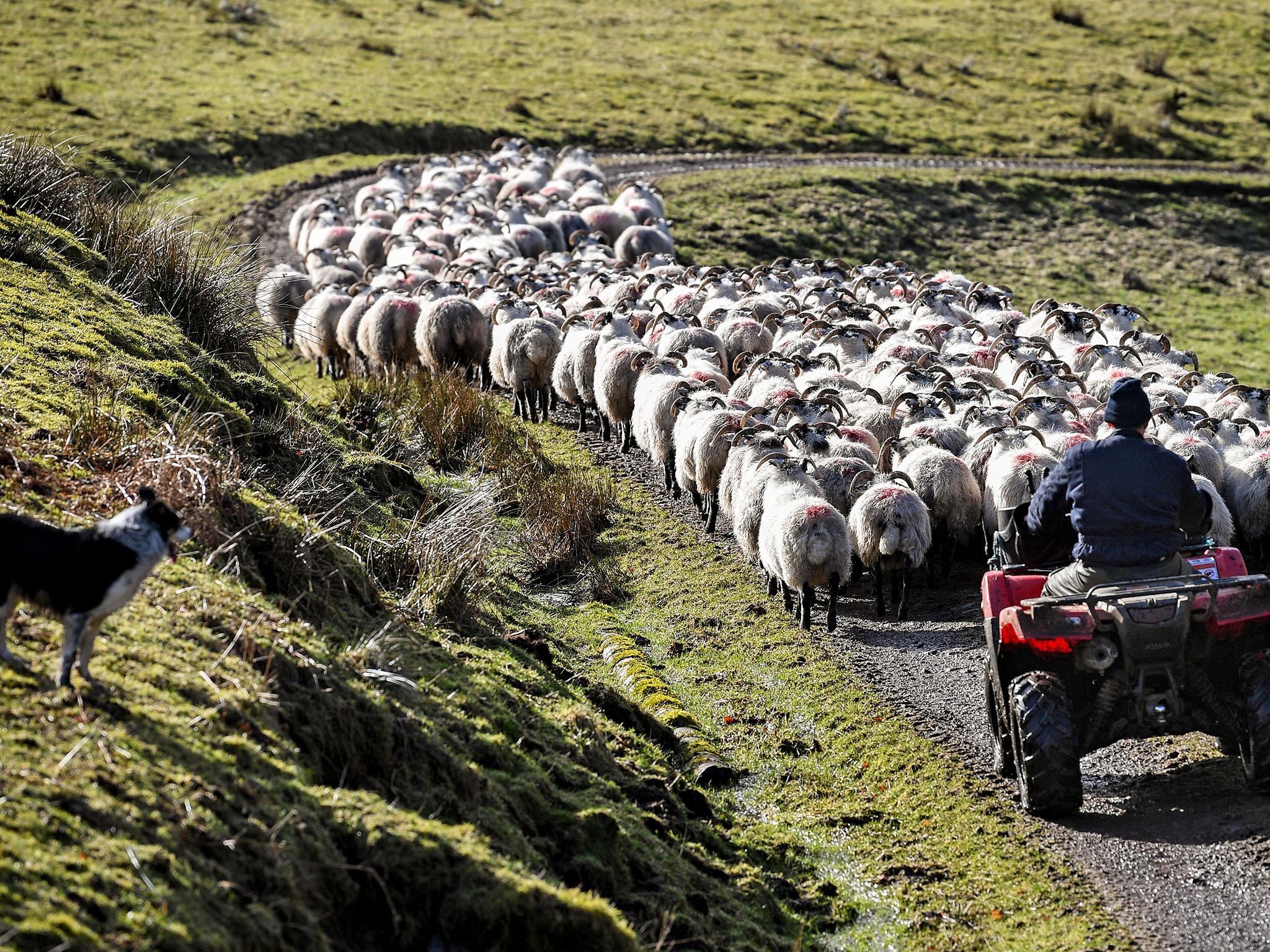The new agricultural bill could be ‘one of the most significant pieces of legislation for farmers in England for over 70 years.’ What does it mean?
The massive shift in policy away the EU Common Agricultural Policy’s direct payments is coming in the post-Brexit world, and Judith Tsouvalis and Ruth Little examine what exactly that would mean

Your support helps us to tell the story
From reproductive rights to climate change to Big Tech, The Independent is on the ground when the story is developing. Whether it's investigating the financials of Elon Musk's pro-Trump PAC or producing our latest documentary, 'The A Word', which shines a light on the American women fighting for reproductive rights, we know how important it is to parse out the facts from the messaging.
At such a critical moment in US history, we need reporters on the ground. Your donation allows us to keep sending journalists to speak to both sides of the story.
The Independent is trusted by Americans across the entire political spectrum. And unlike many other quality news outlets, we choose not to lock Americans out of our reporting and analysis with paywalls. We believe quality journalism should be available to everyone, paid for by those who can afford it.
Your support makes all the difference.The UK’s new agriculture bill has been called “one of the most significant pieces of legislation for farmers in England for over 70 years”. It could directly affect the livelihoods of 460,000 people and determine the future of the 70 per cent of UK land area (17.4 million hectares) currently under agricultural management. The bill sets out the UK’s approach to farming as it prepares to leave the European Union, replacing the Common Agricultural Policy (CAP) that the UK has been part of since 1973.
At the bill’s core is a shift away from direct payments to farmers based upon the amount of agricultural land they manage. This was a feature of the CAP that was heavily criticised as it pushed up land prices, creating an entry barrier for younger farmers, and benefited large landowners disproportionately. It also meant the farming of unproductive land that otherwise might have been turned into wildlife habitat.
Instead, landowners will in future be paid to produce “public goods”. These are things that can benefit everyone but bring no financial reward to those who produce them, like clean air and water.
Over the next seven years, farmers will move from the CAP regulations to a new system of environmental land management contracts. These will detail the terms and conditions under which farmers and land managers will receive funding. Subsidies are expected to be paid out from taxpayer funds at the same rate as the EU – about £3bn a year – to enable landowners to deliver the public goods set out in the government’s 25 Year Environment Plan and the Clean Growth Strategy.
Achieving these goals will seem rather daunting though. They include clean air and plentiful, clean water, but also thriving wildlife, reduced risk from environmental hazards such as flooding and drought, raising animal welfare standards and enhanced beauty, heritage and opportunities to engage with the natural environment.
One of the big priorities of the bill is soil. Erosion rates from ploughed fields are between 10 and 100 times greater than rates of soil formation. As a result, the UK faces a crisis of food security within our lifetimes. The government will reward farmers who protect and improve soil quality with measures such as crop rotation, and give ministers new powers to regulate fertiliser use and organic farming.
Building buy-in from farmers
Alongside the agriculture bill is the new environment bill, which will enshrine environmental principles in UK law after Brexit. The UK will lose access to EU bodies that monitor and enforce environmental laws, so the new environment bill is essential for maintaining standards. With the EU watchdog gone, setting up a new independent Office for Environmental Protection has been proposed, but it’s unclear how effective it will be in imposing the heavy fines necessary to enforce standards.
Finding ways to engage those who will be most affected by the changes will be important for ensuring the policy works on the ground
Farmers often feel isolated from the powers of government and daunted by the task of delivering both agricultural productivity and environmental enhancements. The Department for Environment, Food and Rural Affairs (Defra) has at least committed to designing the new contracts in close collaboration with farmers and land managers.
Finding ways to engage those who will be most affected by the changes will be important for ensuring the policy works on the ground. Landscape-scale solutions to decarbonising agriculture and averting the climate crisis will require huge changes. They won’t be possible without popular support.
But the bill still lacks crucial detail. There are no firm commitments to protect British farmers from cheap, low-standard foreign imports, which is particularly important as the government seeks to negotiate trade deals with countries whose standards are lower than Britain’s.
Building a post-Brexit food and farming system that protects the environment won’t be easy. There are exciting opportunities embedded in this bill. But restoring land to health and guaranteeing food supplies will need proper engagement with those who will be affected and a solid scientific bedrock on which to build the government’s ambitious – but underdeveloped – plans.
Judith Tsouvalis is a research fellow in geography and Ruth Little is a lecturer in human geography, both at the University of Sheffield. This article was originally published in The Conversation (theconversation.com)
Join our commenting forum
Join thought-provoking conversations, follow other Independent readers and see their replies
Comments